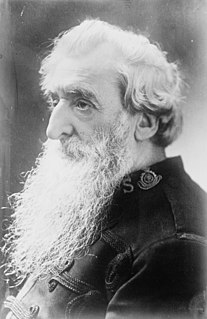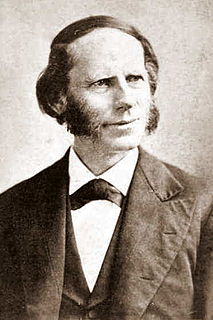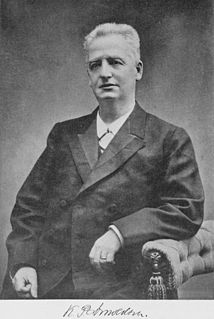A Quote by Michel Foucault
Since the Fall, man had accepted labor as a penance and for its power to work redemption. It was not a law of nature which forced man to work, but the effect of a curse.
Related Quotes
Now since man is naturally inclined to avoid pain - and since labor is pain in itself - it follows that men will resort to plunder whenever plunder is easier than work. History shows this quite clearly. And under these conditions, neither religion nor morality can stop it. When, then, does plunder stop? It stops when it becomes more painful and more dangerous than labor. It is evident, then, that the proper purpose of law is to use the power of its collective force to stop this fatal tendency to plunder instead of to work. All the measures of the law should protect property and punish plunder.
To get a man soundly saved it is not enough to put on him a pair of new breeches, to give him regular work, or even to give him a University education. These things are all outside a man, and if the inside remains unchanged you have wasted your labor. You must in some way or other graft upon the man's nature a new nature, which has in it the element of the Divine.
You are a free man, and let no organization come between you and your best interests. Do not let any man, or any body of men, tell you where you shall work, or where you shall not work, when you shall work, or when, you shall not work. If a man wants to belong to a labor organization, let him belong. If he does not want to belong to a labor organization, let him have perfect liberty to stay out. You own yourself. Let no man put a manacle on your hand, or foot, or head, or heart.
To the labor of man alone Smith ascribes the power of producing values. This is an error. A more exact analysis demonstrates... that all the values are derived from the operation of labor, or rather from the industry of man, combined with the operation of those agents which nature and capital furnish him.
The Man of Genius may at the same time be, indeed is commonly, an Artist, but the two are not to be confounded. The Man of Genius,referred to mankind, is an originator, an inspired or demonic man, who produces a perfect work in obedience to laws yet unexplored. The artist is he who detects and applies the law from observation of the works of Genius, whether of man or nature. The Artisan is he who merely applies the rules which others have detected. There has been no man of pure Genius, as there has been none wholly destitute of Genius.
My reason taught me that I could not have made one of my own qualities - they were forced upon me by Nature; that my language, religion, and habits were forced upon me by Society; and that I was entirely the child of Nature and Society; that Nature gave the qualities and Society directed them. Thus was I forced, through seeing the error of their foundation, to abandon all belief in every religion which had been taught by man.
There is no worse material poverty than one that does not allow for earning one’s bread and deprives one of the dignity of work. Youth unemployment, informality, and the lack of labor rights are not inevitable; they are the result of a previous social option, of an economic system that puts profit above man; if the profit is economic, to put it above humanity or above man, is the effect of a disposable culture that considers the human being in himself as a consumer good, which can be used and then discarded.
The man and the movement seemed 'reactionary' in my eyes. My common sense of justice, however, forced me to change this judgment in proportion as I had occasion to become acquainted with the man and his work; and slowly my fair judgment turned to unconcealed admiration. Today, more than ever, I regard this man as the greatest German mayor of all times.








































